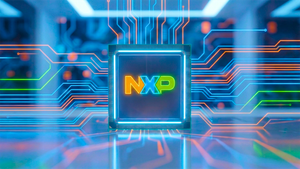Personalis, Inc. (Nasdaq: PSNL) today announced that the company will share data resulting from expanded features of its NeXT Platform® at the Society for Immunotherapy of Cancer (SITC) Annual Meeting, November 8-12 in Boston, with three abstracts that highlight advanced R&D applications of next-generation sequencing (NGS) in immuno-oncology.
"To understand the complex dynamics of cancer and ultimately better predict response to therapy, we need to advance the tools we're using to characterize the tumor microenvironment. We continue to build upon the suite of technologies in our ImmunoID NeXT Platform® to enable the high-resolution study of immuno-oncology targets in an array of contexts, including improved neoantigen prediction, immune-composition profiling, and composite biomarker signatures,” said Sean Boyle, PhD, Executive Director of Bioinformatics Science at Personalis.
The company will present the following posters at SITC2022, as well as with customers including the Parker Institute for Cancer Immunotherapy (Abstracts 559 and 587) and Geneos Therapeutics (Abstracts 691 and 692).
Title: A combination of antigen presentation and T-cell recognition features improves neoantigen immunogenicity predictions (Abstract 51)
Overview: Tumor neoantigen burden outperformed tumor mutational burden in prediction of patient response to checkpoint inhibitor immunotherapy by better capturing the biological mechanism underlying response. However, immune recognition of neoantigens by T-cells requires more than antigen presentation, which has been the focus of tumor neoantigen burden thus far. To address this need, we extend the existing SHERPA® MHC-presentation framework to predict neoantigen immunogenicity. By combining antigen presentation and T-cell recognition features in a two-tiered model, we can better predict immunogenic neoantigens and make progress towards using neoantigens as biomarkers to assess checkpoint inhibitor efficacy.
Title: Sensitive prediction of immunotherapy response by integrating immune infiltration and neoantigen presentation score in late-stage melanoma (Abstract 119)
Overview: Single-modality biomarkers such as tumor mutational burden (TMB) often fail to reliably predict response to immune checkpoint blockade (ICB), likely due to incomplete characterization of the complex tumor-immune interactions that influence treatment efficacy. We previously developed the composite biomarker, neoantigen presentation score (NEOPS™), which integrates neoantigen processing and presentation potency, and showed it outperformed TMB and other single-modality biomarkers in predicting ICB response in melanoma. Here, we combined NEOPS with the assessment of tumor immune infiltration and demonstrated more accurate patient stratification for ICB response.
Title: Transcriptome augmentation provides accurate and sensitive quantification of genes associated with the tumor microenvironment (Abstract 146)
Overview: While malignant cells dictate much of the tumor biology, there is evidence that the tumor microenvironment (TME) also plays a significant role in disease progression and response to therapy. The role of the immune cells is particularly relevant in immunotherapy, and multiple transcriptome-based biomarkers have shown utility in predicting the efficacy of immune checkpoint blockade. However, little is known about the benefits of enhancing the depth and uniformity of transcriptome sequencing coverage for quantifying the TME cell type composition. Using the ImmunoID NeXT Platform®, which combines high-quality exome and transcriptome sequencing with advanced informatics to comprehensively characterize the tumor and TME from a single FFPE tumor sample, applying augmented transcriptome coverage to the assessment of TME benefited the identification of marker genes for cell type enrichment analysis without introducing bias.
About Personalis
Personalis, Inc. is a leader in advanced cancer genomics, enabling the next generation of precision cancer therapies and diagnostics. The Personalis NeXT Platform® is designed to adapt to the complex and evolving understanding of cancer, providing its biopharmaceutical customers and clinicians with information on all of the approximately 20,000 human genes, together with the immune system, from a single sample. To enable cancer sequencing, Personalis' Clinical Laboratory was built with a focus on clinical accuracy, quality, big data, scale and efficiency. The laboratory is GxP-aligned as well as Clinical Laboratory Improvement Amendments of 1988-certified and College of American Pathologists-accredited. For more information, visit the Personalis website and News Center and follow Personalis on LinkedIn and Twitter.
Forward-Looking Statements
All statements in this press release that are not historical are “forward-looking statements” within the meaning of U.S. securities laws, including statements relating to attributes or advantages of the NeXT Platform, Personalis’ business opportunities, leadership, plans or expectations, or other future events. Such forward-looking statements involve risks and uncertainties that could cause actual results to differ materially from any anticipated results or expectations expressed or implied by such statements. Factors that could materially affect actual results can be found in Personalis’ filings with the U.S. Securities and Exchange Commission, including Personalis’ most recent reports on Forms 8-K, 10-K and 10-Q, and include those listed under the caption “Risk Factors.” Personalis disclaims any obligation to update such forward-looking statements.
View source version on businesswire.com: https://www.businesswire.com/news/home/20221107006051/en/
Contacts
Investor Relations Contact for Personalis:
Caroline Corner
investors@personalis.com
415-202-5678
Media Contact for Personalis:
Jennifer Temple
pr@personalis.com
650-752-1300





